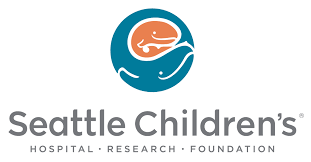
Editor's note: This article was sponsored by Seattle Children's Hospital.
Pediatricians have long recommended simple, fresh staples such as bananas and peas as healthy options for baby’s first solid foods — the less processing, the better. Those recommendations took on added importance last month, when a government report revealed that neurotoxins, including lead and arsenic, were present in well-known packaged foods for babies.
The report, titled “Baby Foods Are Tainted With Dangerous Levels of Arsenic, Lead, Cadmium and Mercury,” was released in February 2021 by the Subcommittee on Economic and Consumer Policy Committee on Oversight and Reform in the U.S. House of Representatives. In it, the subcommittee reported that high levels of toxic metals were found in popular products made by seven of the most recognizable baby food brands in the United States, including Nurture (maker of HappyBABY and Happy Family Organics), Beech-Nut, Hain (maker of Earths Best Organic), Gerber, Walmart, Campbell and Sprout Organics Foods.
Within two weeks of release of the subcommittee’s report, the FDA released a response that emphasized regulations in place to protect consumers from harmful toxins in foods. The report reminds us that even with regulations in place, it’s easy to unknowingly purchase potentially harmful products, says Sheela Sathyanarayana, M.D., MPH, a principal investigator in the Center for Child Health, Behavior and Development at Seattle Children’s, an associate professor of pediatrics at the University of Washington and an adjunct associate professor in the UW Department of Environmental and Occupational Health Sciences.
Rigorous testing of food products may not adequately protect consumers, either. Aside from FDA-imposed regulations, many companies conduct their own tests for unsafe toxins, says Sathyanarayana. “The report showed that many of these companies had their own internal tests for toxins and that they were having trouble meeting their own internal standards.”
The news is particularly troubling because toxic metals can negatively impact brain development during an important stage in a child’s growth. Research links lead exposure in early childhood to developmental delays and decreased intelligence. Because lead and other metals are environmental toxins present in everything from soil to paint to lead-glazed ceramics, and because pound per pound, children take in more food, water and air than adults, young children can accumulate more lead than adults with similar levels of exposure.
“Parents are very concerned,” says Sathyanarayana. “They saw this on the news and are coming in and asking questions, so we’ve been aware of this and talking to families about it.”
Resources for families
What families can do
Toxic metals are hard to avoid, because they’re part of our environment, notes Sathyanarayana. “For something like arsenic, you can avoid rice cereal, but arsenic is naturally occurring, and unfortunately it’s not easy to get out of the food supply.”
But there are a few things consumers can do. Avoiding processed foods and opting for foods with fewer ingredients and less packaging can help reduce the risk of consuming toxic metals. The more points of contact for processing, the more likely a food is to be contaminated, says Sathyanarayana. “If you look at an ingredient list and, for example, it’s just carrots and water, that’s less processing than something with a longer ingredient list.”
Offering babies and toddlers a variety of foods and not relying on one food too heavily have always been healthy habits for families, and that’s still true, she notes. “Eating a variety of foods and not feeding any food every single day for a long period of time are some of the things I talk about with families, and those were the things we talked about before this report.”
Families concerned about exposure to lead or other toxins can talk to their pediatrician about testing; infants are usually tested for lead at their 9-month well-child appointment. “Families can talk to their doctor or contact the University of Washington Pediatric Environmental Health Unit about concerns,” says Sathyanarayana.
She’s reminding families that avoiding all toxic metals isn’t possible. “There’s no way to get to zero risk and you can’t avoid everything,” Sathyanarayana says. “So we talk about ways to reduce exposures.”
|
Sponsored by: |












